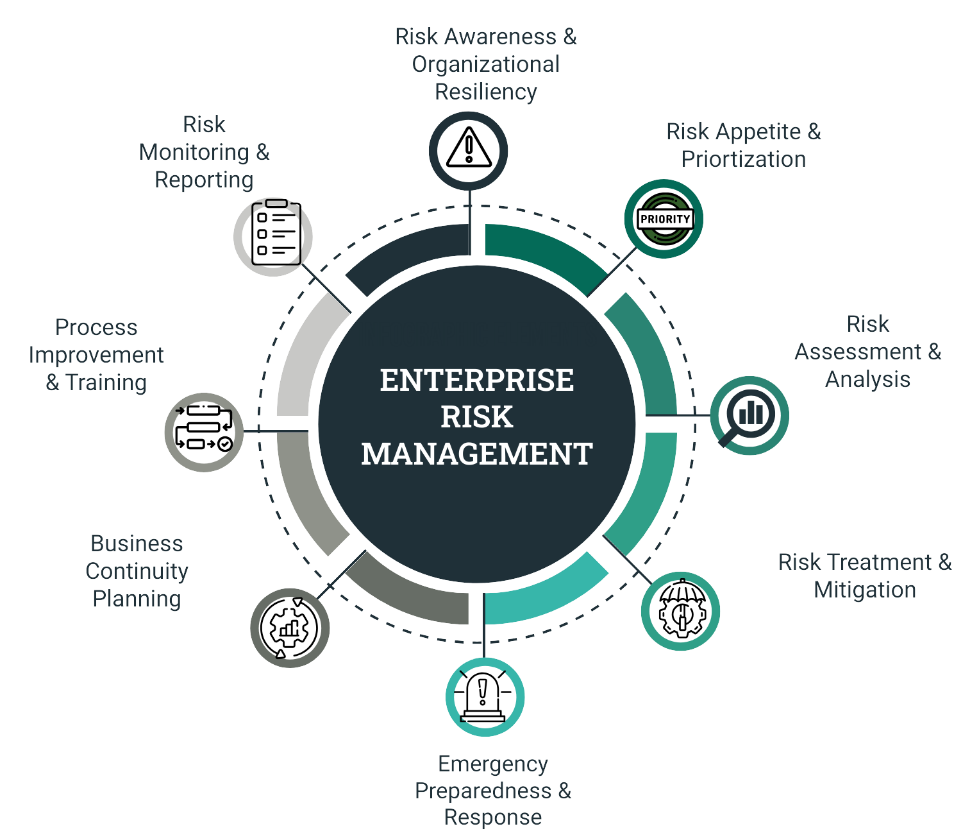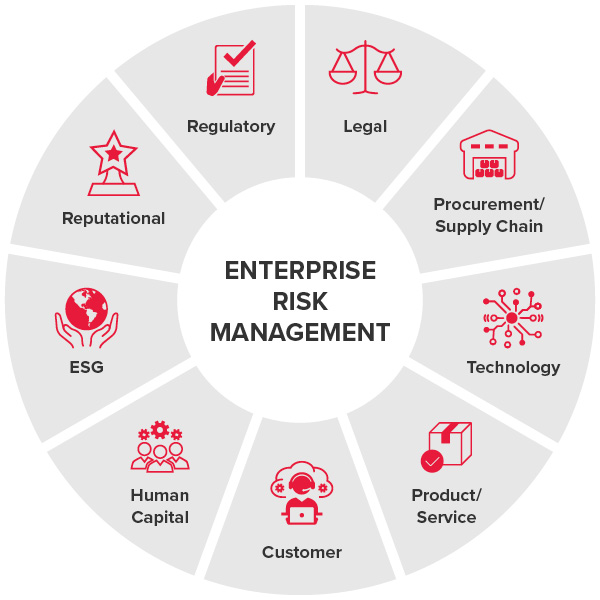Insider threats represent a important subject for digital readiness
Wiki Article
Check out the Duty of AI in Encouraging Ethics and Stability to Battle Expert Threats Effectively
The integration of AI in organizational frameworks has become essential in resolving insider risks. By using sophisticated analytics and real-time surveillance, AI systems can determine discrepancies from moral actions amongst workers (Insider threats). This aggressive technique not just improves conformity however likewise promotes a setting of trust fund. As companies significantly rely upon these technologies, concerns occur concerning their performance and possible effects for workplace culture. What exists in advance in the evolution of AI's duty in advertising integrity?Understanding Expert Risks and Their Influence On Organizations
Organizations often concentrate on outside hazards, expert threats position a significant threat that can threaten safety and security and honesty. These hazards arise from people within the company, such as contractors or workers, that might abuse their access to delicate information for individual gain or destructive intent. The effect of insider risks can be severe, causing economic losses, reputational damages, and legal implications.Elements adding to insider dangers include frustration with the office, lack of oversight, and insufficient worker training on safety methods. Organizations often battle to identify these threats, as they can be challenging to find up until considerable damages has happened. Prevention approaches need to concentrate on promoting a society of depend on and liability, along with executing robust monitoring and reporting systems. By recognizing and dealing with the complexities of expert hazards, organizations can boost their security posture and protect their valuable assets from internal risks.
The Evolution of AI in Work Environment Safety And Security
As companies significantly challenge diverse security difficulties, the integration of fabricated intelligence (AI) in office safety and security has actually developed substantially. Initially, AI applications concentrated mostly on automating basic security methods, such as accessibility control and security. Developments in device knowing and information analytics have transformed AI right into a proactive device capable of determining possible risks and vulnerabilities in real-time.Organizations now utilize AI-driven systems to analyze huge amounts of data, allowing them to identify strange behavior that might show expert hazards. This advancement has led to the advancement of advanced algorithms that can pick up from historical cases, boosting the system's anticipating abilities. On top of that, AI devices are progressively utilized to improve occurrence reaction procedures, permitting protection groups to act promptly and effectively.
Exactly How AI Monitors Worker Behavior for Ethical Compliance
Expert system plays a vital function in checking employee habits to ensure ethical conformity within companies. AI systems examine large quantities of data produced by staff members, consisting of communications, purchases, and accessibility to delicate info. By employing innovative algorithms, these systems can determine deviations from developed ethical standards and business plans.Artificial intelligence models continuously adjust to recognize patterns of behavior that may suggest honest breaches, such as unauthorized data access or uncommon transaction tasks. Insider threats. On top of that, AI-driven tools can supply real-time informs to monitoring, facilitating prompt treatments when potential risks are found
The assimilation of AI right into conformity monitoring not only enhances the organization's ability to support stability yet likewise cultivates a culture of accountability among workers. By advertising openness, AI systems offer as a deterrent against dishonest actions, ensuring that workers continue to be straightened with organizational values and ethical requirements.
Evaluating Patterns: Identifying Risky Habits With AI
A growing number of companies are leveraging AI to evaluate patterns that might suggest high-risk habits among employees. By using innovative algorithms, these systems can sift with large amounts of data, recognizing anomalies in user actions that might suggest prospective expert hazards. For circumstances, AI can spot unusual accessibility patterns to sensitive information, such as workers accessing data outside their usual range of job or during irregular hours. In addition, behavioral analytics can highlight frequent changes in a worker's communication style or collaboration behaviors, which might represent underlying concerns. This positive strategy enables organizations to identify danger elements prior to they rise right into substantial risks. Subsequently, the integration of AI right into keeping an eye on techniques not only improves safety however likewise cultivates a culture of responsibility and moral behavior. By determining these patterns, organizations can better understand the behavior characteristics within their workforce, ultimately promoting a safer and extra moral workplace.
Real-Time Insights: Immediate Actions to Possible Threats
Real-time insights with anticipating analytics and automated sharp systems play a vital role in attending to prospective dangers to values and stability. By leveraging these modern technologies, companies can anticipate dangerous habits and respond quickly to mitigate threats. This positive strategy enhances accountability and cultivates a culture of integrity in numerous settings.Anticipating Analytics Applications

Automated Alert Solutions
Predictive analytics supplies a foundation for companies to boost their responsiveness to ethical issues via automated sharp systems. These systems make use of real-time information to monitor activities, spotting abnormalities that might symbolize prospective expert hazards. By leveraging artificial intelligence formulas, automated signals navigate to these guys can recognize patterns of habits that differ developed norms, permitting quick intervention. This immediacy is vital in mitigating risks linked with unethical practices. Automated alert systems can improve communication amongst appropriate stakeholders, making certain that potential threats are resolved promptly and successfully. As companies progressively rely upon AI-driven services, the assimilation of automated sharp systems will certainly play a crucial function in cultivating a culture of values and stability, inevitably protecting organizational possessions.Promoting a Society of Count On Via AI-Driven Transparency
AI-driven openness can substantially boost trust within companies by advertising liability and open communication. Through real-time monitoring services, stakeholders can get insights into procedures and decision-making, promoting a culture of honesty. Data-driven decision-making better sustains this openness, making it possible for informed selections that line up with ethical standards.Enhancing Transparency and Liability
How can companies successfully cultivate a culture of depend on? By improving transparency and accountability through the strategic use man-made intelligence. AI can aid organizations systematically track decision-making procedures, guaranteeing that actions line up with established ethical criteria. This transparency enables staff members to see the reasoning behind decisions and plans, reducing ambiguity and cultivating a sense of fairness. Furthermore, AI-driven devices can help with clear interaction concerning obligations and assumptions, encouraging people to take ownership of their actions. As accountability comes to be deep-rooted in the business culture, workers are most likely to involve in honest actions, knowing their actions are checked and evaluated. Eventually, this approach cultivates an atmosphere where trust fund can flourish, greatly alleviating the risk of insider hazards.Real-Time Monitoring Solutions
As organizations increasingly seek to foster a society of trust fund, real-time surveillance services emerge as a critical tool in enhancing transparency. These AI-driven systems continually track tasks, offering understandings right into customer behavior and possible anomalies that might suggest insider dangers. By executing such surveillance services, organizations can proactively recognize dangers, making sure timely responses to dubious activities. This not just safeguards delicate info yet likewise strengthens a dedication to honest practices. Additionally, the transparent nature of real-time monitoring helps build worker self-confidence, as people are aware that their activities are being observed for the better good. Inevitably, these remedies serve to cultivate a workplace setting grounded in trust fund, accountability, and moral integrity, necessary for alleviating expert hazards properly.
Data-Driven Decision Making
Real-time monitoring services lay the groundwork for data-driven choice making, which significantly enhances organizational openness. By leveraging AI modern technologies, organizations can evaluate substantial amounts of information to determine patterns and anomalies a sign of prospective insider dangers. This logical approach makes it possible for stakeholders to make informed choices grounded in empirical proof, promoting a society of trust fund among workers. Openness in decision-making processes, bolstered by AI-driven understandings, motivates liability and moral habits. Additionally, it enables organizations to proactively deal with susceptabilities, guaranteeing that actions taken are justified and communicated clearly. Consequently, the implementation of data-driven techniques not only minimizes threats related to insider hazards but also strengthens the values of honesty and moral conduct within the business structure.Future Fads: The Duty of AI in Enhancing Work Environment Ethics
While companies increasingly turn to expert system for operational performance, the capacity of AI to enhance work environment principles is gaining prominence. Future trends indicate that AI will certainly play an important duty in establishing ethical frameworks and standards, enabling organizations to navigate intricate moral problems. By assessing vast amounts of data, AI have a peek at these guys can identify patterns of unethical habits and supply understandings that advertise openness and liability.Additionally, AI-driven devices can assist in real-time surveillance of worker communications, ensuring adherence to moral standards. This proactive technique not only mitigates expert dangers however additionally cultivates a culture of honesty. As companies welcome AI technologies, they need to additionally focus on moral programming and algorithmic predisposition reduction to ensure justness.
In this evolving landscape, the combination of AI in ethical methods represents a transformative shift, cultivating an environment where honesty is not simply anticipated yet systematically strengthened.
Frequently Asked Questions
Exactly How Does AI Differentiate In Between Benign and Malicious Actions?
AI distinguishes between benign and harmful activities by examining patterns in customer actions, using maker discovering formulas to identify anomalies, and reviewing contextual data to identify whether actions align with well established standards or display possible hazards.Can AI Equipment Replace Human Judgment in Honest Decision-Making?
AI tools can not completely change human judgment in honest decision-making. While they can evaluate information and identify patterns, the nuanced understanding of context, worths, and ethical ramifications still calls for human insight and discernment.What Are the Personal Privacy Implications of AI Monitoring Staff Member Actions?

Just How Can Organizations Make Sure AI Algorithms Are Ethically Made?
Organizations can guarantee AI formulas are morally made by executing clear advancement procedures, including diverse stakeholders, conducting regular audits, and sticking to well-known ethical structures that focus on fairness, accountability, and regard for user privacy and rights.What Training Is Needed for Personnel to Comprehend Ai's Ethical Role?
Personnel training must encompass fundamental AI principles, data privacy, and bias understanding. Workshops, situation research studies, and interactive sessions can enhance understanding, guaranteeing workers identify AI's moral effects and its duty in cultivating integrity within the organization.
Artificial knowledge plays an essential function in checking worker habits to guarantee honest compliance within companies. The assimilation of AI into keeping track of techniques not only enhances protection yet additionally promotes a society of liability and ethical actions. While organizations progressively face ethical problems and possible stability breaches, anticipating analytics applications offer timely insights that can assist minimize these threats. Anticipating analytics gives a foundation for companies to improve their responsiveness to ethical issues through automated alert systems. Future patterns indicate that AI will play an essential blog role in developing moral structures and standards, allowing companies to navigate complicated ethical dilemmas.
Report this wiki page